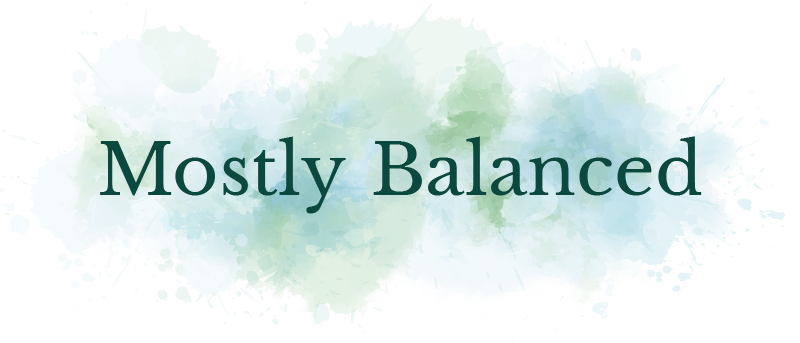
Here’s what I’m reading, cooking, and enjoying this week:
What I’m currently enjoying
What Tayari Jones bought with her Oprah bookclub money.
Women supporting women (thekitchn.com).
This artist, especially her watercolors and birch series. And the pines.
Women writers’ recommendations for what to read this month.
Weekly Menu Plan
Sunday: Dinner out with the family at Waypoint
Monday: Pan-seared steak tips, mashed potatoes, and asparagus
Tuesday: Cauliflower gnocchi (experimenting with the Trader Joe’s product) with a creamy sun-dried tomato sauce
Wednesday: Dinner out with David at The Table at Season To Taste (still celebrating!)
Thursday: Tortellini with tomato sauce
Friday: Rice and veggie stir fry with tofu
Saturday: Pan-seared pork chops, rice pilaf, and sautéed green beans

Title: Good and Mad
Author: Rebecca Traister
Date: 2018
Format: Library book
There have been a few books about women and anger on my radar this past year (I’m also eyeing Rage Becomes Her and The Logic of Misogyny). I’m familiar with Rebecca Traister’s work and wanted to read this, even though I was a bit apprehensive about immersing myself so deeply in anger and stewing in the difficulties of where our country and culture seem to be. In reading the book, the first half was a bit disappointing, in that it was predictably about politics. Her writing is great, but I felt a bit that I was her “choir” (as in, preaching to the choir), and I didn’t learn much new.
Where things really sizzled was in the second half of the book, which felt much more rooted in our cultural systems rather than politics (in as much as those two things are actually ever separate). She turned her experienced eye to the stories of women in the midst of the #metoo movement, and her journalistic expertise really uncovered narratives and layers that were deeper and fresher than what I’d encountered so far.
In particular, she wrote a passage describing the experience of Kristen Meinzer, the podcast host I mentioned loving last week. In her podcast, Kristen talks a bit more opaquely about her experiences with harassment (at least thus far), so it felt close-to-home in some ways (the way things are when you feel like you know someone through their online presence, but they have no idea who you are) to see her story in Traister’s book.
A few of my favorite passages are below:
“An admittedly small number of women who had gained unprecedented power — within colleges and graduate schools, in business, in entertainment, in media, in politics — had begun to enjoy opportunity and power that had historically been denied. And if those women wanted to move forward, they couldn’t afford to behave in the confrontational, angry ways that had marked a past approach to a fight for something closer to actual equity. Because that challenge, that fury, would designate them as outsiders, as marginal. To have climbed within the system was to agree not to tear it down, not to remind America too aggressively of its gender and racial inequities or distract from the cheery view of progress and empowerment.” (pg 12)
“The popularity of the Angry Black Women cartoon also leaves these women doing a lot of the work of expressing anger that white women feel, but are discouraged, in different ways, from expressing themselves. This is crucial to an online social media phenomenon that has been dubbed ‘digital blackface,’ a practice whereby white and other nonblack users turn to GIFs of black people expressing the emotions they wish to convey.” (pg. 77) “‘We’re your sass, your nonchalance, your fury, your delight, your annoyance…On the internet, white people outsource their emotional labor to black people.” (pg 78)
Kristen Meinzer, the radio producer who’d leveled allegations said in conversations that she felt ‘fortunate’ for the women who’d first broken their silence on Weinstein, who’d helped create a world ‘where we’re allowed to be angry finally. I feel that for the longest time, we weren’t allowed to be furious. And my god, should we all be enraged? And I don’t just mean the women in the room. But shouldn’t everybody be?’ (pg 189).
The task – especially for the newly awakened, the newly angry, especially for white women, from whom incentives to renounce their rage will be highest in the coming years – is to keep going, to not turn back, to not give in to the easier path, the one where we weren’t angry all the time, where we accepted the comforts of racial and economic advantage that will always be on offer to those who don’t challenge power. Our job is to stay angry… perhaps for a very long time. (pg 247)





